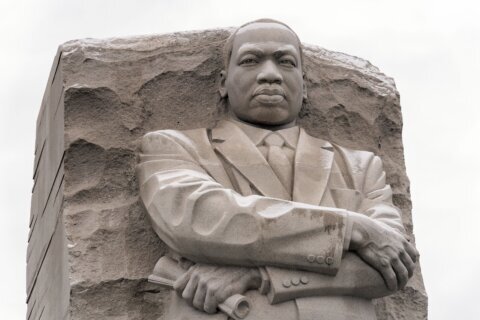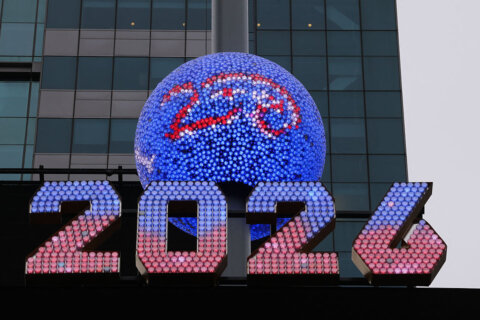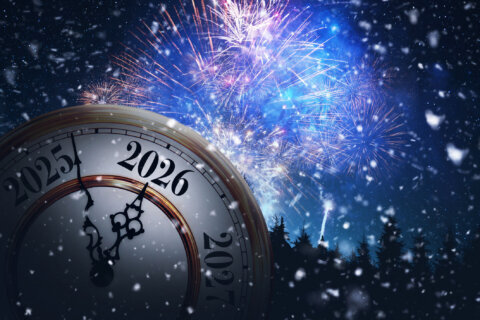Clink, clink, clink — may we have your attention, please?
While feasting and imbibing with family and friends this holiday season, you just may feel moved to say a few words. But maybe you don’t know where to start.
For those without the natural gift of gab — and even those with it — WTOP’s Neal Augenstein spoke to professional speech writer and author Eddie Rice for a few pointers on how to make an effective toast that resonates with your audience.
While there’s no one-size-fits-all formula for making a great toast, Rice’s advice will heighten your chances of making a connection, and maybe even touching a heart or two. Read the conversation below:
Neal Augenstein: Obviously, New Year’s is coming. What is a toast?
Eddie Rice: A toast is just simply a short message meant to commemorate the occasion and to look forward to new occasions.
Neal Augenstein: There’s lots of New Year’s toasts already out there, even one-word ones — “cheers,” “l’chaim” (Hebrew for “to life”) — why write a new toast?
Eddie Rice: I think part of it is, you don’t want to be cliché. You can do “cheers,” you can do “l’chaim.” You can do any of those, they’re going to work fine in most situations. But if you want to honor the people that are there and honor the event itself, I think writing a short toast yourself can go a long way toward making it just a little bit more memorable, a little bit more special for the people that are there with you.
Neal Augenstein: Tell me a little about some of the characteristics that you think goes into a good toast.
Eddie Rice: I think obviously, the key one to focus on first is to keep it short. Everyone wants to celebrate, they want to get back to talking to their family and friends. Keep it short. But whether or not you want to be funny, or sentimental, that really depends on your personality. If you’re not a naturally funny person, don’t go looking for those one-liners, those dad jokes, that are just going to get a whole bunch of groans, or even just, worse humor, where you’re going to offend someone. You want to honor the people who are there. And that really means not making the toast about yourself. Too many times people want to make it a monologue about themselves, about their story, their personal relationship to whoever it is they’re toasting. But if you make it all about yourself and not about the people in the room, then they’re going to tune out.
Neal Augenstein: The period of time when you’re going from the old year to the new — is it good to reflect upon where you’ve just been? Or is a better New Year’s toast just looking at the future?
Eddie Rice: It really depends. What has the audience gone through? Has it been a tragic year for them? Has it been tumultuous? Has it been joyous? And that should guide you as to how much you want to reflect on the past year versus looking toward the new year. It’s much more motivational to talk about the future and new opportunities, new dreams, new goals.
Neal Augenstein: I think most times someone is holding a drink when it’s approaching New Year’s. How should the person who’s going to give the toast get people’s attention?
Eddie Rice: I think it’s just as simple as you kind of just showed it. You raise your glass, you can either clear your throat or you can just say, “I’d like to make a toast.” That’s all it has to be. Just wait for the room to quiet down and for them to notice you. But of course, you’ve got to pick your spot. If you’re trying to do it right before the ball drops on New Year’s Eve, you’re not going to have anyone’s attention. So, make sure that you do pick out kind of one of those quiet moments where there’s a lull in the conversation to raise the glass and make the toast.








